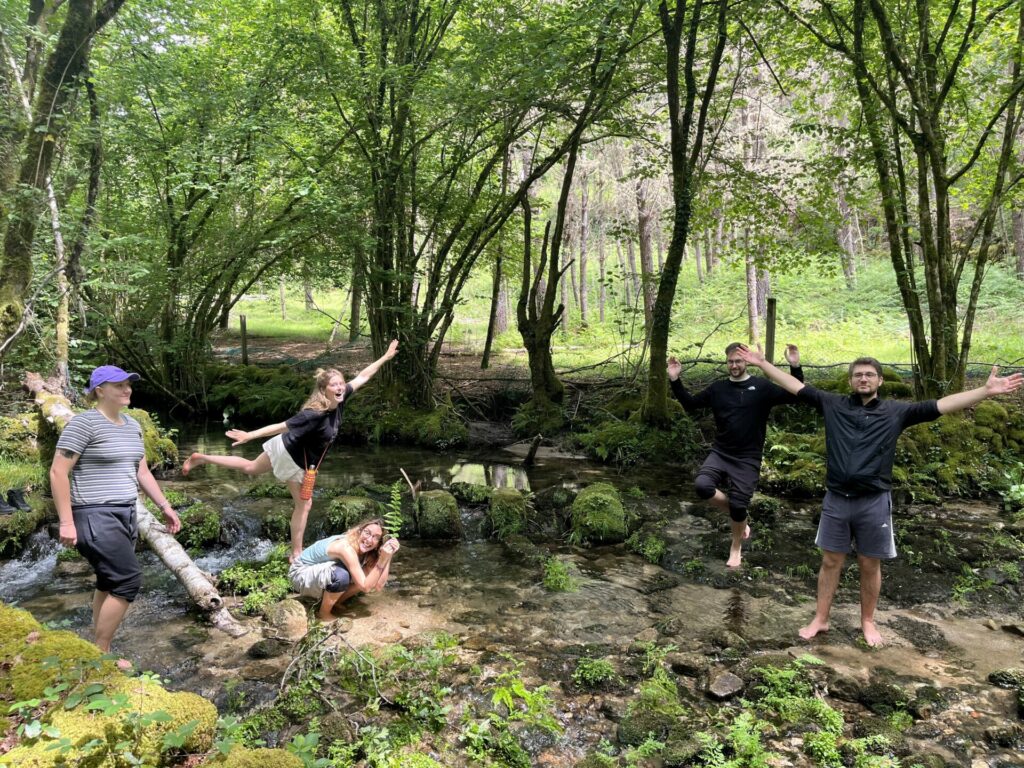Our Journey to a Sustainable Community trough rural coliving
Four years ago, we moved to the countryside. Since then, we have been exploring new ways of living. From connecting with nature to finding ways of living where everyone needs less. Where we can share resources without each person needing their own washing machine, drill, or multiple unused living rooms, share internet, and help each other. We have spent this time trying to understand what this means. In a world that demands the opposite, an individualistic world that separates us from nature and the sense of humanity. Suddenly, we encounter people and projects that open our eyes to new ways. Today, we share how we are connecting with people who are starting to explore new economic models.
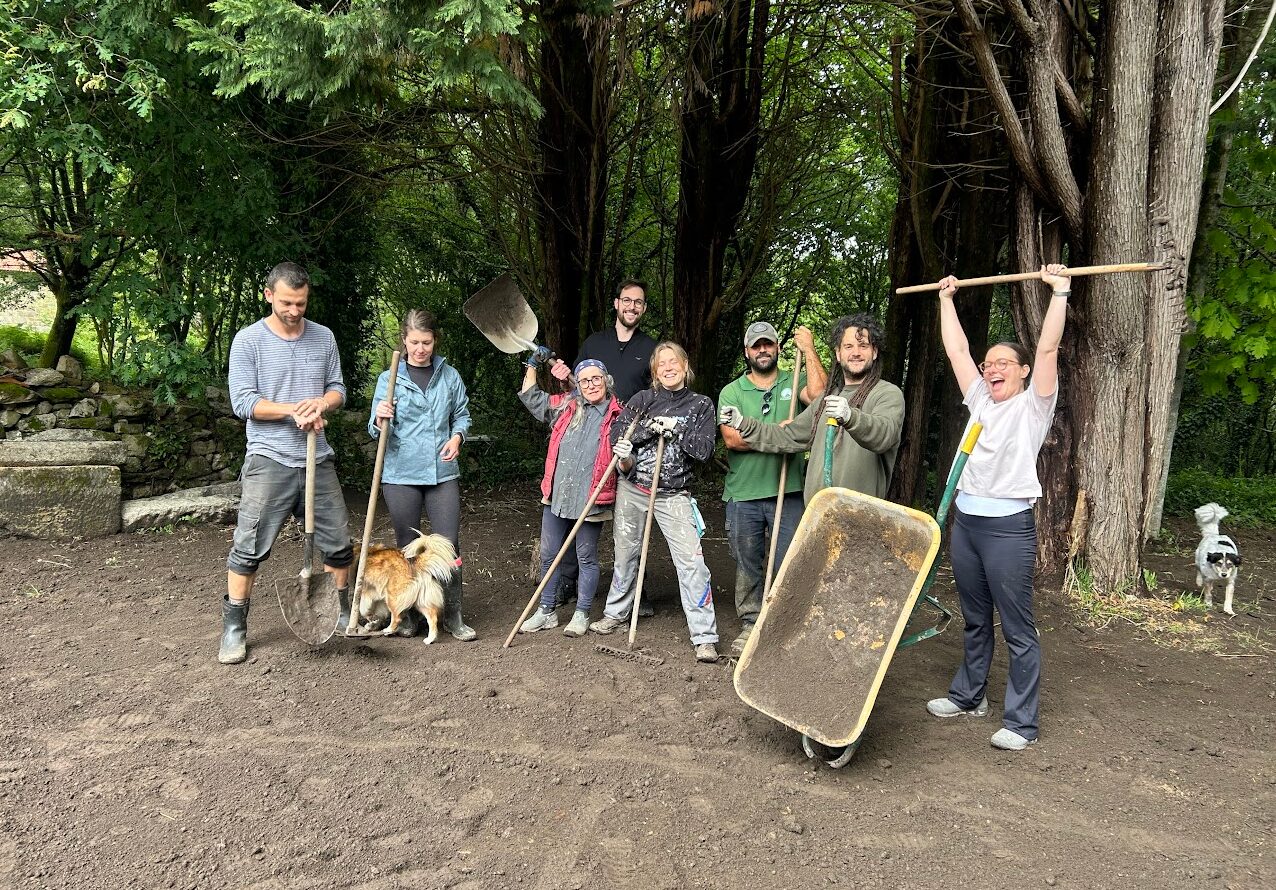
What is the Post-Growth Innovation Lab?
Let’s say that curiosity is our guide. Serendipity attracts us to unexpected levels. Our aim is to discover what will be the next thing that moves us. One day, we read an article in a local newspaper about a research group in Pontevedra that was focusing on new economic models. It is a research group focused on proposing models of economic degrowth from Pontevedra. It’s name is Post-Growth Innovation Lab.
The University of Vigo’s Post-Growth Innovation Lab is an international, interdisciplinary group with a common research interest: enabling a sustainable, inclusive, and fair ecological transition away from the exploitative economic model that exists today.
They believe in democratising science, technology, and innovation structures. The group maintain that if mankind abandons its blind pursuit of infinite economic growth, we can all thrive on this planet without damaging each other. The lab aim to bring novel, relevant, and multifaceted approaches to some of the most complex threats to our future.
We went to visit them at their headquarters in Pontevedra. We discovered their next line of research: analyzing how local Communal Forest Associations in Galicia can help create a positive impact in rural areas. Communal Forest Associations in Galicia are entities that help manage the communal land of villages like Anceu. Our local one, is very active. We saw the potential for possible synergies between the university and this entity.
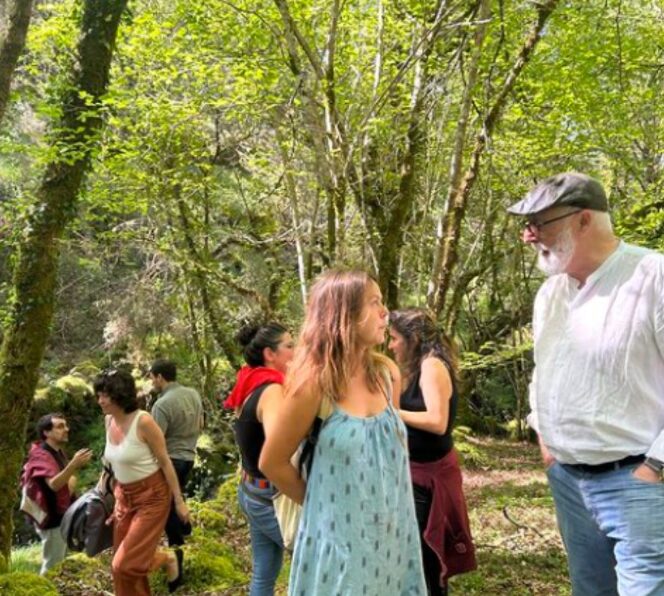
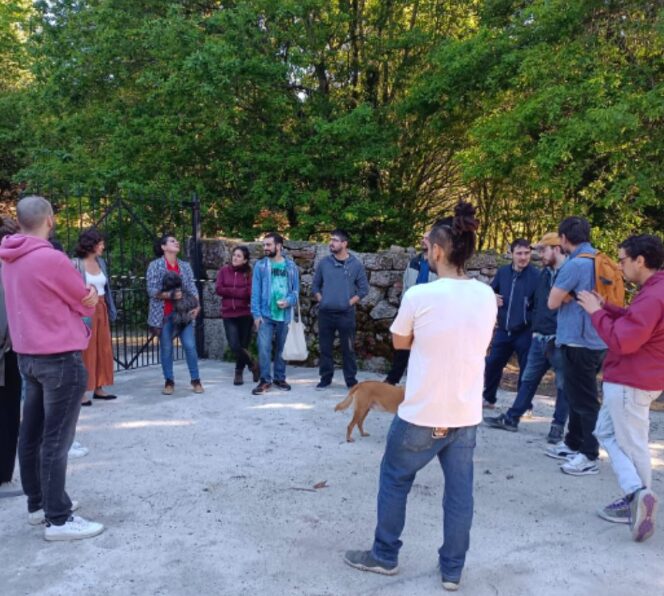
Anceu Communal Forest Association as a case study for rural development
When people ask us how we manage to do so many things, we say that our context has played a huge role. We have three very active associations in the village. One of them is the communal forest association. This entity is developing a lot of activities to promote an active rural area. Historically, these associations focused on extractive activities to generate economic resources from logging. Today, there are innovative models where these entities consider the need for sustainability from an environmental and social perspective. Our Comunal Forest Associations develops some of the following activities:
- Activities to promote the reforestation of our forests to combat the invasive species of eucalyptus. This includes social initiatives such as “El Día de Plantación de Árboles”. It is an event where children plant trees where eucalyptus trees have been cut down.
- Promoting the opening of trails for community enjoyment:. The association supports initiatives like “Pegadas do Recordo” facilitating the opening and maintenance of trails for the enjoyment of the village.
- They manage the land to ensure that leftover wood is shared among all the people in the village. They coordinate the cutting and distribution of free firewood to the village population.
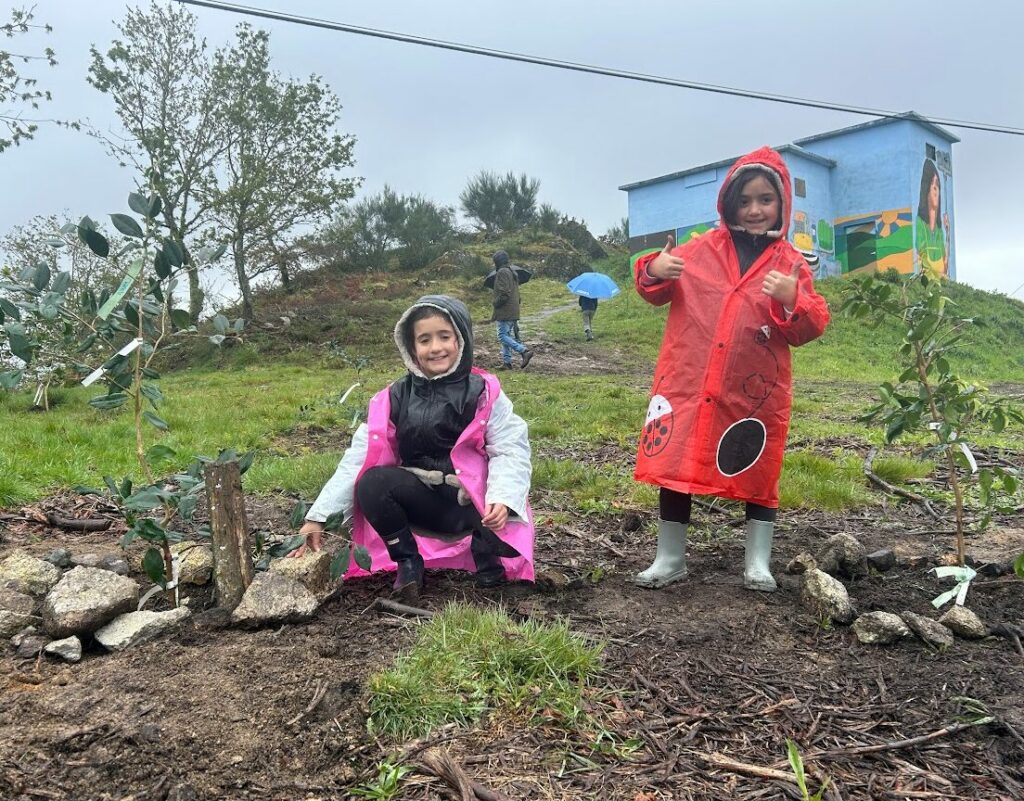
Connecting trough research, coliving and experimentation
To connect the communal forest association Anceu with the university, we organized a meeting at Anceu Coliving. The goal was to know firsthand what our project entails and to discover more about the impact of our forest association. We invited Camilo, the president of the forest assocaition. Afterward, we shared reflections and models from both our community and others in the area to explore the opportunities in rural areas. Additionally, We also explained in detail the social impact projects that we develop through our association, Rural Hackers. The aim is to build bridges that lead us to places where experimentation and research find points of connection to advance and innovate.
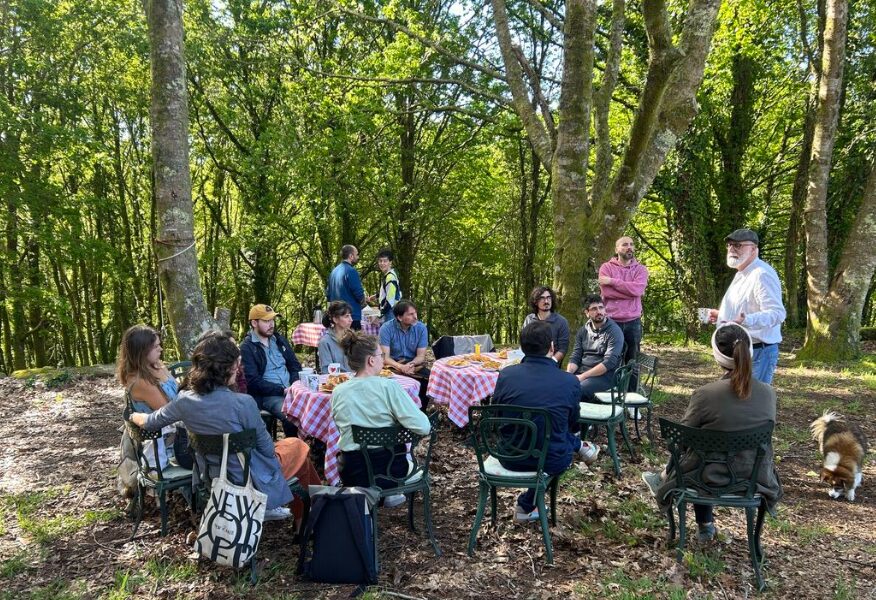
As a result of this meeting, we set future steps:
- We decided to organize monthly meetings to continue growing towards the serendipity that will lead us to the right place for experimentation and analysis.
- We initiate conversations about future projects, such as participating in the Marie Curie fellowships. This will allow us apply for European calls in collaboration with this research group. This would enable researchers to undertake stays in rural areas, participating in real projects and analyzing their evolution.
- We open conversations for the Anceu forest Association to become a case study for the European research project.
From urban to rural arena, fostering vibrant rural areas.
As a result of these monthly meetings, a couple of weeks ago Mario Pansera, the director of the research group, visited the offices of our sister coworking hub, Espacio Arroelo. He came to inspire the community of this coworking space about degrowth economy models. Additionally, we will gather at Castro Baroña on the 12th July. The objective is to visit this communal forest association. They are creating a tremendous impact so we are willing to learn more about them. The resin, livestock on the land, and mycology are some of the uses implemented by the Communal Forest Associacion of Castro Baroña. We will learn how they work to maintain a multifunctional land that also serves social and cultural purposes.
Here are some photos showcasing their projects:
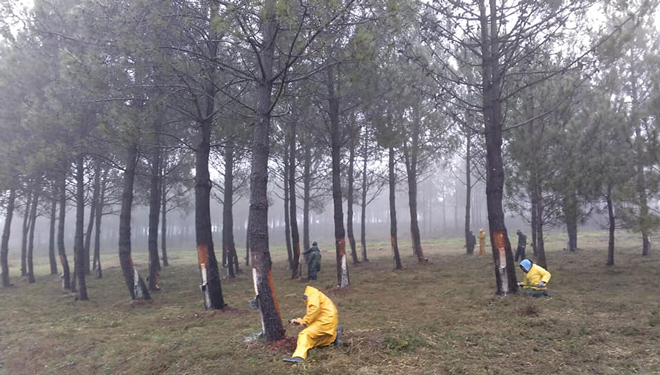
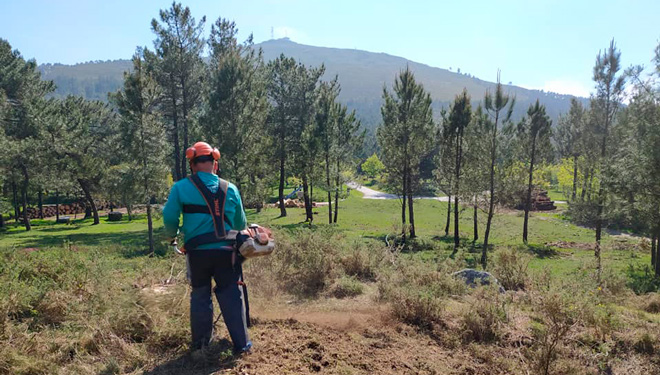
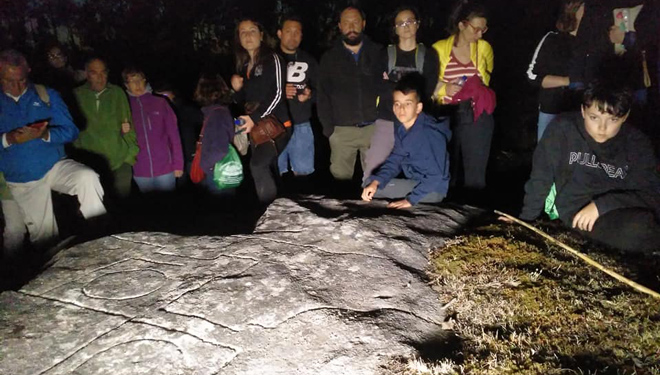
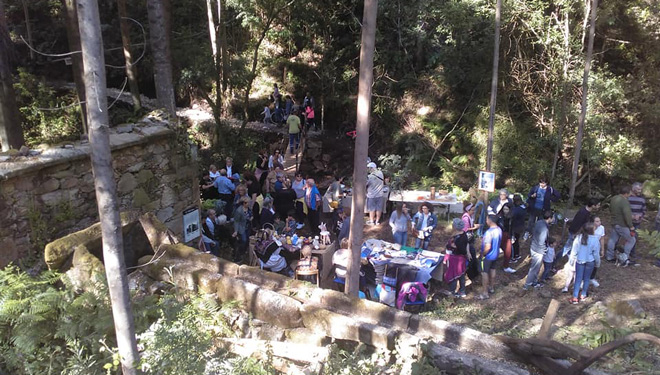
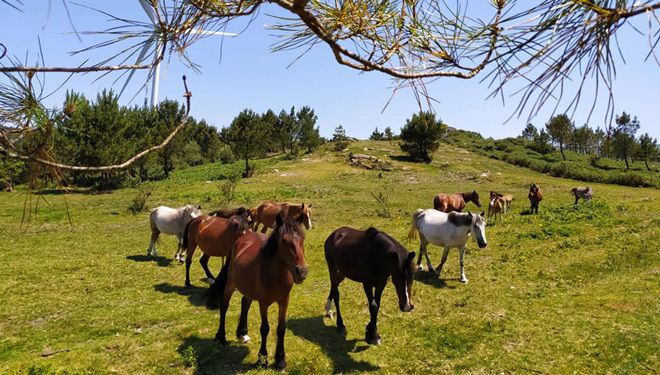
Serendipity to create rural impact…
This is what we can share with you so far. We don’t know where these meetings will take us. We have no clue where the research is headed, or where the experimentation will end. We don’t know what this journey that connects changemakers will bring. What we do know is that in the empty space between experimentation and analysis, new things arise. And those are what we want to discover. Serendipity is about knowing where you start and not knowing where you might end up. That’s the magic.
